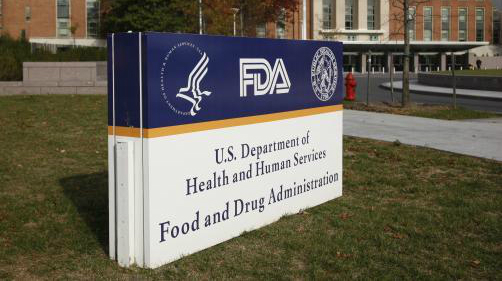Seattle Genetics and Astellas gain Breakthrough Designation for urothelial cancer treatment

The FDA has granted Breakthrough Therapy Designation to enfortumab vedotin, an antibody-drug conjugate (ADC) being developed by Seattle Genetics and Astellas.
Currently in phase 2, enfortumab vedotin is being investigated for patients with locally advanced or metastatic urothelial cancer who were previously treated with checkpoint inhibitors (CPI).
All the leading checkpoint inhibitors are licensed to treat urothelial carcinoma - including market leaders Merck’s Keytruda and BMS’ Opdivo – but patients who progress after taking these drugs currently don’t have many options.
The designation was granted based on interim results from a phase 1 study of enfortumab vedotin as monotherapy treatment for these patients.
The data published last year showed 16 out of 30 patients treated at the optimum dose achieved an objective response, or reduction in their tumour size, with one patient seeing a complete response with no trace left of their cancer.
“The FDA Breakthrough Therapy Designation underscores the potential of enfortumab vedotin as a meaningful treatment for patients with locally advanced or metastatic urothelial cancer. Further, it supports our rapid development plans for this ADC, including the ongoing pivotal study in this patient population,” said Robert Lechleider, M.D., Senior Vice President, Clinical Development at Seattle Genetics.
Seattle Genetics specialises in drug antibody conjugates, and already has another conjugate, Adcetris, on the market for a number of lymphoma types.
Last week the company gained FDA approval to expand the use of Adcetris (co-marketed with Takeda) into combination use with chemotherapy for front line use in adults with stage III or IV classical Hodgkin lymphoma.
The breakthrough designation for enfortumab vedotin is further good news, as it is key to the growth plans of Seattle Genetics and Astellas.
[caption id="attachment_39119" align="alignnone" width="270"] Steve Benner[/caption]
Steve Benner[/caption]
“Achieving Breakthrough Therapy Designation for enfortumab vedotin is another step forward in our goal to bring an additional treatment option to patients who need it most,” said Steven Benner, M.D., Senior Vice President and Global Therapeutic Area Head, Oncology Development at Astellas.
A phase 2 trial of the drug combined with checkpoint inhibtors is also underway, and Steve Benner says this forms a central plank in Astellas’ push into hard-to-treat cancers.
The companies are also evaluating enfortumab vedotin in other solid tumours, including ovarian and non-small cell lung carcinoma.
The enfortumab Breakthrough designation has come just days after Johnson & Johnson gained the same status for its pipeline drug in metastatic urothelial carcinoma.
Its drug erdafitinib is an oral pan-fibroblast growth factor receptor (FGFR) tyrosine kinase inhibitor currently in Phase 2 and 3 clinical trials. The drug is being studied only in those patients with an FGFR mutation.
A phase 2 study showed the drug produced an overall response rate of 42% in 59 patients with relapsed/refractory metastatic urothelial cancer whose tumors harbored actionable FGFR mutations.












